Cranking The Learning Machine Up To 11
Another obsession. Do you read to signal or to learn?
Hello everyone,
When I wrote The Reading Obsession, it was about a good idea taken too far. Unfortunately, this easily happens in the age of social media, hijacked attention, and weaponized status games. Great ideas get warped, corrupted, and lose their potency.
Take an evergreen, Munger’s metaphor of the learning machine. It’s a great guiding principle for life and investing, which Yen Liow once called “the most extreme version of competitive learning.”
I constantly see people rise in life who are not the smartest, sometimes not even the most diligent, but they are learning machines. They go to bed every night a little wiser than they were when they got up, and boy, does that help, particularly when you have a long run ahead of you. Develop into a lifelong self-learner through voracious reading. Cultivate curiosity and strive to become a little wiser every day.
Unfortunately, platforms like Twitter and LinkedIn condition us to become insight junkies. They serve quick bites that make us feel smarter but turn out to be empty calories. Book lists are a great example. They seem valuable (can’t afford to miss out on these sources of wisdom!) and trigger our curiosity without requiring any mental work. They make the creator look smart and match the audience’s flickering attention and restless desire to consume.
Take podcaster Lex Fridman’s hugely popular/controversial 2023 reading list. Imagine churning through one of these a week. Brave New World? Sure. But Dostoevsky? It makes a lot more sense once you see it as not a reading list but a tool of audience engagement.

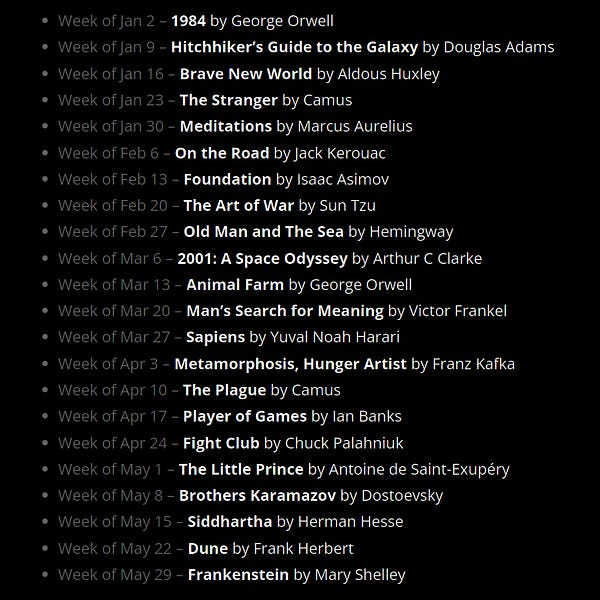
I’m as guilty of engaging with this as anyone.
I used to relentlessly bookmark lists and articles in a futile quest to tackle the infinite conveyor belt of seemingly relevant content. My curiosity first went into overdrive, then degraded into a mindless and frantic motion. I’d put the learning machine into overdrive. But it didn’t make me any wiser.
In his book The Art of Playing Defense, Whitney Tilson, after invoking Munger’s learning machine, writes about how his reading “slowed to a trickle” amidst a barrage of emails and other commitments of a busy schedule. He found the solution in audiobooks. Rather than listen to his favorite music, he listens to books, podcasts, and YouTube at 2-3x speed.
In a typical day, I might go to the gym for 45 minutes and have a meeting or other event in Midtown, which is a 15-minute bike ride each way, so that’s one and a quarter hours every day, which is equal to nearly four hours of a book at regular speed—a third of a typical 12-hour audiobook. Thus, I’m cranking through two books every week, which has enriched my life in innumerable ways.
I’m not saying Tilson is wrong. I too listen to podcasts and audiobooks at accelerated speeds (I typically choose 1.5-1.8x depending on the speaker). But his comment reflects the idea that the quantity of input consumed is indicative of the learning that has taken place. It equates speed with progress. This strikes me as flawed and counterproductive.
It reminded me of the guitarist in This is Spinal Tap who proudly shows his amplifiers which, rather than stopping at ten, “go to 11.” They are not louder, it’s just their dial that goes one notch further. It’s a delusion born out of the blind quest for ‘more.’
Nigel: The numbers all go to eleven.
Marty: I see. And most amps go up to ten?
Nigel: Exactly.
Marty: Does that mean it's louder? Is it any louder?
Nigel: Well, it's one louder, isn't it? It's not ten.
…
Marty: Why don't you just make ten louder and make ten be the top number and make that a little louder?
Nigel: These go to eleven.
The skimpy book list of Charles T. Munger
Buffett and Munger regularly recommend books in Berkshire’s annual letter or, if prompted, at the annual meeting. You can find a list of Munger’s favorites in the appendix to Poor Charlie’s Almanack or on the ‘Munger bookshelf’ assembled by the prolific Kevin G. Munger is 99 years old and reads all the time. With that in mind, the list of books he mentioned seems surprisingly short. He might well crank through several books a week. But he won’t tell you about almost any of them. Why is that?
Presumably, most of what Munger and Buffett read is simply not notable. It’s not interesting or high quality enough to share. Much of it barely adds a small incremental piece of information to their existing mosaic.
But more importantly, they don’t read to signal. They don’t discuss their reading habits to grow a following and collect social media brownie points. They don’t read to tick off boxes on a list and feel accomplished. They read to learn. They read to change their minds, update their thinking, alter their behavior, and enhance their understanding of the world. They read to retain.
Asked about his reading habits in 2011, Buffett commented that he wasn’t “a fast reader.” He noted that Munger read at a higher speed and that this was an enormous advantage. If that was the case, why didn’t Buffett just learn to speed read?
There’s that old Woody Allen story about how he took the speed reading course, and he met somebody, he was telling him how wonderful it was, and the guy said, “Well, give me an example.”
And Woody Allen said, “Well,” he said. “I read ‘War and Peace’ last night in 20 minutes. It’s about Russia.”
That’s the problem I have when I try and read fast. I get all through reading the book, and I say, it’s about business.
Read it again. If Buffett churns through a book too quickly, nothing sticks.
Munger drove the point home:
I think speed is overestimated. I had a roommate at Caltech who had a very distinguished mind, and I could do problems faster than he could, but he never made a mistake, and I did.
So, I wouldn’t be too discouraged if you have to go a little slower. What the hell difference does it make?
Damn right. What the hell difference does it make if you go a little slower if it means you get it right?
This man reads because he wants to, not because he feels anxious when he doesn’t.
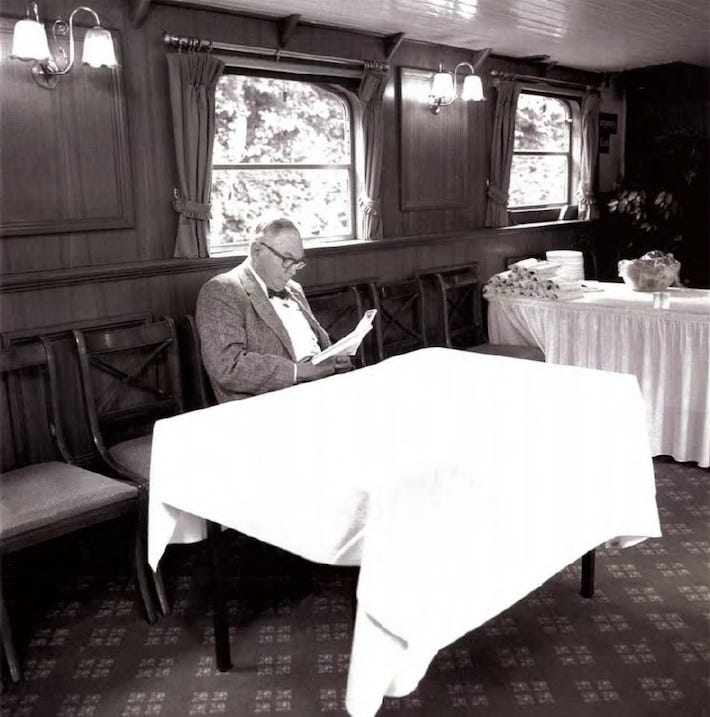
The search for balance
I read a lot of books in parallel and that’s not everyone’s cup of tea. But sometimes it seems absolutely necessary. For example, when reading Rick Rubin’s new book The Creative Act, I can barely get through 2-3 of its short chapters before putting it down. I need some distance to process, to let it work on me. I expect to revisit much of the book when I’m done, perhaps multiple times.
Rubin recently explained his media consumption habits. He is one of the most prominent music producers who commented that he had “no technical ability”, that he was paid for his confidence in and ability to express how he felt. In other words, at least part of his success is based on his taste, his ability to find essence, resonance, and quality, and to bring this to the table when working with artists.
I’m a mass consumer of information and art all the time. So I’m always reading, listening, taking in stuff, but I’m not always taking in stuff. It’s what I enjoy. I’m not doing it like homework. I’m doing it because, the reason I am who I am is because that’s how I’ve always done it. That’s my default mechanism is I want to hear as much as I can. I want to understand more.
I don’t want to hear stuff I don’t want to hear, but I want to hear everything that I might want to hear, and I want to exhaust the list to make sure I’m not missing anything as best I can.
Rubin is not that different from Munger except that his learning machine is focused not on books and worldly or business wisdom but on art and culture, and primarily music.
Importantly, Rubin is not trying to ingest everything. He knows that’s impossible. For example, he mentions that he has barely had time to watch movies. But he is trying to take in everything that is relevant, everything he “might want to hear.” That’s the raw input in which he is trying to find the signal.
I’ve started to think of productive time as divided into three segments. There is a time for input, for output, and for putting it all down.
Input is the time for learning and feeding the mind. It’s time spent reading, exploring, listening, watching, asking questions, taking in whatever information is interesting or relevant. This creates the feedstock from which you draw for your work.
Output is when you actively transform what you’ve accumulated into, well, output. It’s time to write, analyze, code, design, record, coordinate, and manage.
But in between you need a filter. You need a time of disengagement during which your subconscious can sift through the pile. This could be sleep and naps during which a process of discernment and synthesis can run in the background. But it also applies to many other seemingly unimportant activities during which your mind is disengaged: walks and time spent in nature, family time, washing the dishes, playing games, listening to music. It’s the proverbial shower during which ideas suddenly bubble up.
Rubin writes that “distraction is one of the best tools available to the artist when used skillfully.”
When we reach an impasse at any point in the creative process, it can be helpful to step away from the project to create space and allow a solution to appear.
He advises to hold a problem “to be solved lightly in the back of our consciousness instead of the front of our mind.” This allows us to “remain present” with the problem while engaging in unrelated tasks such as “driving, walking, swimming, showering, washing dishes, performing any activity we accomplish on autopilot.”
When we feel pressure to be more productive, to get more done and move faster, this balance breaks down. We start to rush during the input phase and try to squeeze more into our brains. We start to grind during the output phase until we’re working with a depleted well.
And we cut down on what feels least productive: our time of disengagement. Why put things down when you can grind instead? After all, while we’re away from the desk, someone else is out there outworking us. We can open social media and see the evidence. The world has been turning while we were doing… nothing. So we run faster and upset the process that made our work outstanding.
What does this mean for us?
Two recurring themes on David Senra’s Founders podcast are that great founders are obsessed with their work and that great athletes practice with an intimidating intensity. Senra, who basically reads biographies for a living, has adopted this mindset. He constantly revisits the books he’s already read. As he explained to Patrick O’Shaughnessy:
People are like, ‘It sounds like you have really good recall. You must have a really good memory.’ Absolutely not. The way I make the podcast, I read a book, make the highlight. That's the first time I read the highlight. The book is done. The night before I record ... I'll re-read all the highlights. That's the second time I've read the highlights. Now I record the podcast. That is the third time I've read the highlights. I edit the podcast. That is the fourth time I've heard the highlights. Then the fifth time is, I have to take pictures with the Readwise app and input them, one by one. It usually takes hours to do this. That's the fifth time.
I re-read my highlights every day, because I don't want to forget the lessons. There's a limited amount of stuff that you are actually going to remember.
Life is not a quest to read the most books and investing is not a race to out-read your competitor. Value is created by applying what you’ve learned through better judgment. This requires reading, repeated engagement to process and integrate, and even periods of disengagement to filter and surface what is important.
The next time you put down a book or article to jump to the next one, ask yourself first:
Should I immediately move on or could I use some time without any input to let myself process? Does my ‘input’ box feel full?
Did I fully grasp the key ideas? Am I leaving something on the table by moving on? Should I revisit this work in a week?
Has my understanding of the outer and inner worlds changed? Did I experience a shift in perspective? Did this make me wiser? Did it enrich my mind?
How should I change my behaviors and thinking based on what I learned? Is anything in my life going to change or did I just read this to tick a box?
Naval once commented that he’d rather read the best 100 books over and over again than open something new whose value was uncertain. That’s a step too far but it’s an interesting idea. What will make more of a difference: churning through another set of podcasts, books, and articles, or truly internalizing the lessons from one great work?
The danger is to confuse the learning machine with a reading machine. Don’t let the information FOMO of platforms like Twitter, LinkedIn, or even your podcast feed fool you. The goal is not to beat the scoreboard of weekly consumption. The goal is to integrate and apply what wisdom we find. The goal is to change and to act. And that is hard and takes time. The risk is that you turn the dial to 11 without realizing that nothing is changing.
That said, with the right balance, reading remains one of the best ways to invest your time.
Thank you for reading,
Frederik




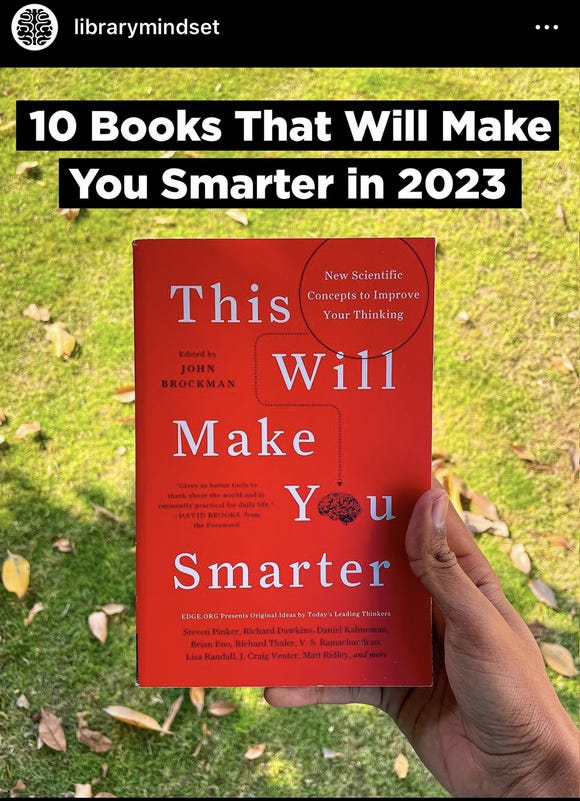
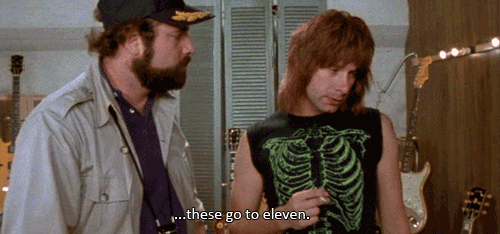


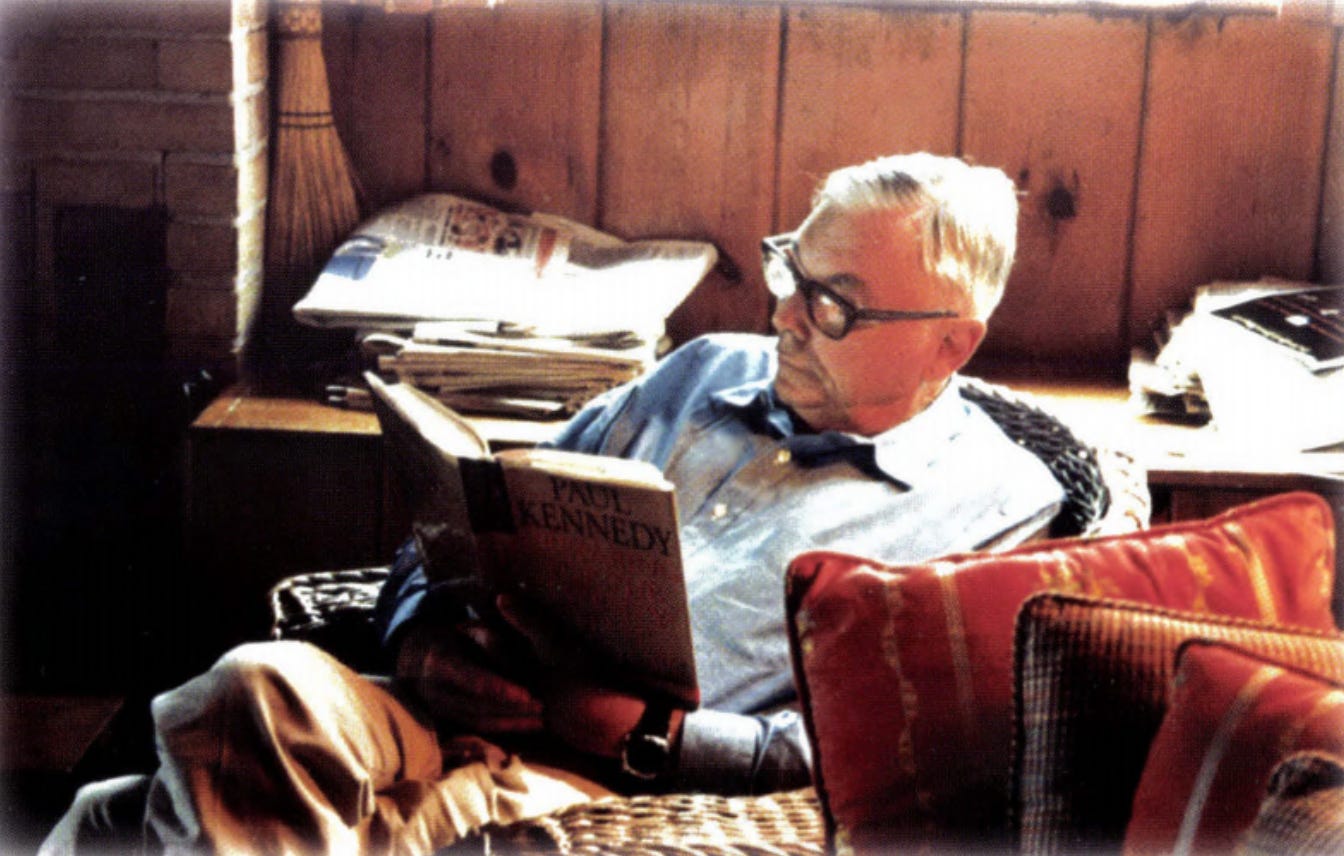
Thanks. Currently reading "Man Who Solved the Market". Half way through and I find nothing of value despite countless five star reviews. The book describes the increasing sophistication of their data analysis but you never really get a "how". Charlie would call this a sunk cost and tell me to stop reading!
Good one! Know this struggle well.